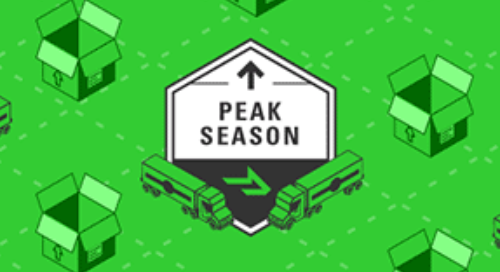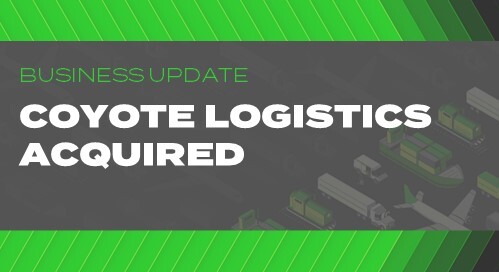How the Coronavirus Stimulus Package Can Support Your Small Business
In an effort to support the American people during the global coronavirus pandemic, Congress recently passed a record-high $2.2 trillion economic relief plan.
The stimulus package, HR 748, also known as the Coronavirus Aid, Relief, and Economic Security (CARES) Act, is a comprehensive plan that includes:
- Small Business Aid
- Stimulus Checks for Individuals
- Other Policy Changes to Support American Citizens
These are all meant to ease the burden brought on by the spread of COVID-19 and corresponding widespread 'shelter-in-place' orders.
What is an economic stimulus?
According to Wikipedia, it refers to attempts to use monetary or fiscal policy to stimulate the economy.
While we don’t claim to be experts on U.S. economic policy, we’ve compiled resources that can help answer some questions you may have about the stimulus package, how it can affect your business and what you can do to take advantage of this support.
Small Business Aid
What loans and other support are available for my small business?
In an effort to help businesses keep their workforce employed during the Coronavirus (COVID-19) crisis, the national Small Business Administration (SBA) announced the Paycheck Protection Program (PPP).
What is the Paycheck Protection Program (PPP)?
The PPP is a loan designed to provide a direct incentive for small businesses to keep their workers on the payroll.
The SBA will fully forgive any loans if all employees are kept on the payroll for 8 weeks and the money is used for:
- Payroll (due to likely high subscription, at least 75% of the forgiven amount must have been used for payroll).
- Rent
- Mortgage interest
- Utilities
Loan payments will also be deferred for 6 months. No collateral or personal guarantees are required. Neither the government nor lenders will charge small businesses any fees.
The SBA will fully forgive the loan if employers use funds for payroll, interest on mortgages, rent and utilities.
Loan forgiveness will depend on whether or not the employer maintains, or quickly rehires, employees and maintains their salary levels.
Forgiveness will be reduced if full-time headcount declines, or if salaries and wages decrease.
This loan has a maturity of 2 years and an interest rate of 0.5%.
According to the SBA, if you wish to begin preparing your application, you can download a sample form to see the information that will be requested from you.
Who is eligible for the PPP?
This program is for any small business with less than 500 employees affected by coronavirus/COVID-19, including:
- Sole proprietorships
- Independent contractors
- Self-employed persons
- Private non-profit organization
- 501(c)(19) veterans organizations
Businesses in certain industries may have more than 500 employees if they meet the SBA’s size standards for those industries.
Use the SBA size standard tool to see if you qualify.
Small businesses in the hospitality and food industry with more than one location could also be eligible at the store and location level if the store employs less than 500 workers. This means each store location could be eligible.
How can I apply?
You can apply through any existing SBA 7(a) lender or through any federally insured depository institution, federally insured credit union, and Farm Credit System institution that is participating.
Other regulated lenders will be available to make these loans once they are approved and enrolled in the program.
You should consult with your local lender as to whether it is participating in the program.
When can I apply?
Lenders may begin processing loan applications as soon as April 3, 2020.
Loans will be distributed on a first come, first served basis.
Loans will be distributed on a first come, first served basis, so you should contact your local lender as soon as possible to see whether it is participating in the program and to check your eligibility to apply.
What about small business disaster relief?
On March 12, the SBA announced a new small business disaster loan program.
The SBA’s Economic Injury Disaster Loans offer up to $2 million in assistance, providing vital economic support to small businesses that need help overcoming the temporary loss of revenue they may be experiencing.
What can I spend these new small business disaster loans on?
Qualifying businesses can use these loans to pay:
- Fixed debts
- Payroll
- Accounts payable
- Other bills that can’t be paid due to the disaster’s impact
The interest rate for these disaster loans is 3.75% for small businesses without the ability to secure credit elsewhere.
How do I apply for a small business disaster loan?
You can apply for assistance through the U.S. Small Business Administration’s website.
For additional resources visit the SBA website or use the following disaster assistance contact information:
- Phone: 1-800-659-2955
- Email: disastercustomerservice@sba.gov
Is there any additional support available to my small business beyond the PPP and small business disaster loans?
The U.S. Small Business Administration has other resources — developed before and during the coronavirus outbreak — that may be helpful to small business owners.
Their website includes:
- Free business counseling
- Regular and disaster loans
- Business plan development support
- Other funding and learning resources
Individual Stimulus Payments
When does the stimulus go into effect?
On March 30, The Treasury Department and the Internal Revenue Service (IRS) announced that distribution of economic impact payments will begin in the next 3 weeks.
Treasury Secretary Steven Mnuchin said he expected most people to get their individual payments by April 17.
Who is eligible for the individual stimulus payments?
Tax filers with adjusted gross income up to $75,000 for individuals and up to $150,000 for married couples filing joint returns will receive the full payment.
For filers with income above those amounts, the payment amount is reduced by $5 for each $100 above the $75,000/$150,000 thresholds.
Single filers with income exceeding $99,000, and joint filers with no children exceeding $198,000 are not eligible.
Eligible taxpayers will automatically receive up to $1,200 for individuals ($2,400 for married couples) with an additional $500 for each qualifying child.
Eligible taxpayers who filed tax returns for either 2019 or 2018 will automatically receive an economic impact payment of up to $1,200 for individuals or $2,400 for married couples. Parents also receive $500 for each qualifying child.
How do I apply to receive this individual payment?
The IRS will distribute these payments automatically. For most people, no action is required.
- Some seniors and others who typically do not file returns will need to submit a simple tax return to receive the stimulus payment.
- For people who have already filed their 2019 tax returns, the IRS will use this information to calculate the payment amount.
- For those who have not yet filed their return for 2019, the IRS will use information from their 2018 tax filing to calculate the payment.
The IRS economic impact payment will be deposited directly into the same banking account reflected on the return the taxpayer filed.
What do I do if the IRS does not have my direct deposit information?
In the coming weeks, the government plans to develop a web-based portal for individuals to provide the IRS with their banking information online.
This way individuals can receive payments immediately as opposed to sending checks in the mail.
What can I spend my individual payment on?
The economic impact payments do not have guidelines for how the money can and should be spent.
Individuals can choose how best to use this money to support themselves and their families during this time of need.
Other Support for American Citizens
What if I haven’t filed my taxes yet?
On March 21, the IRS announced that they automatically extended the federal income tax filing due date from April 15, 2020, to July 15, 2020.
The IRS extended the tax filing due date to July 15.
Taxpayers can also defer federal income tax payments due on April 15, 2020 to July 15, 2020, without penalties and interest, regardless of the amount owed.
This deferment applies to all taxpayers, including:
- Individuals
- Trusts and estates
- Corporations
- Other non-corporate tax filers
- Those who pay self-employment tax.
The IRS urges taxpayers who are due a refund to file as soon as possible. The IRS is still issuing most tax refunds within 21 days.
What else is being done to keep products moving during this critical time?
According to our friends at the Consumer Brands Association, there were 3 components included in the final bill that enable companies to ship the critical products that consumers are demanding.
- Allowing states to issue permits to lift truck weight requirements on interstate highways to increase the flow of essential goods for coronavirus relief through the rest of the fiscal year.
- Providing funds and resources to the U.S. Environmental Protection Agency for expedited registration of disinfecting products essential to stopping the spread of COVID-19.
- A National Academies of Sciences study on the security of the medical supply chain in the United States, including PPE masks used by healthcare workers and manufacturing employees, to mitigate supply issues in the future.
Where should I go for more information regarding the stimulus package?
The best source of information regarding the economic stimulus is the IRS's coronavirus website.
Additionally, the American Trucking Association and Consumer Brands Association have collected valuable resources for carriers and shippers moving goods during this time.
Coyote Is Here to Support You
As you continue to push forward, we want to reaffirm our commitment to you. Coyote cannot adequately thank you enough for your unwavering work ethic and collaboration.
To better support you, we’re developing coronavirus resources and weekly insights to keep you informed. You can view them all at resources.coyote.com/coronavirus.
You can also talk to your rep about what other Coyote resources are available to support your small business.
You can take advantage of CoyoteGO®, our digital freight platform, for on-demand access to keep your business moving, as well as savings through programs like the Coyote Fuel Program.
We’re here to help you today and in the days to come.
From the entire Coyote Logistics team, stay safe and healthy.
Disclaimer: Coyote Logistics is using national government and other official sources in order to provide a snapshot of the current situation. As this is a rapidly changing picture and these sources are not always updated in a timely manner, we cannot guarantee that the information provided here is still correct.
The information used to create this article was current as of April 1st, 2020.
It is not intended as legal, financial or professional advice and it should not be relied on for investment or commercial decisions.




